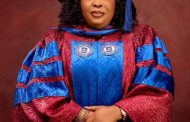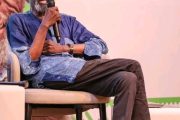It should be a frightening thing in any society for Political Science or political scientists to go quiet. This is particularly so in Nigeria where Political Science has been in the forefront of the debates that drove the society to the few heights it attained. Literature has been the undisputed leader of this culture of debates. There can be no debate about this if people take another look at how the major Nigerian writers – the Ogbuefis and Asiwajus of Nigerian Literature – anticipated what we are in today almost to the last detail. The novelists and dramatists did this so well that, in more organised societies, the study of Nigerian novelists and dramatists would be a compulsory course for all undergraduates irrespective of their main course of study. The simple reason for that is that there are no better analyses of postcolonial Nigeria than the literary texts by the major writers.
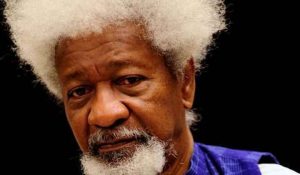
Wole Soyinka
But Political Science and History would certainly follow Literature in terms of powerful insights into how the dynamics were working out. There is no debate about this even as there is this claim that Political Science was, unlike Literature, not sharp and qualitative in its interventions. The example is given of how Soyinka and Achebe, for instances, were using characters in their texts to warn about dictatorship and unproductive leaders at a time political scientists were debating whether one party system is good or bad or if the military cannot act as a revolutionary vanguard. Those who push this argument did not deny that Political Science remained and remains the foremost discipline sensitizing its students and practitioners on the Political in any society. And since the political is the most crucial of the relationships undergirding society, it means voices from that intellectual space is a major requirement for an enduring democratic order. Absence of Political Science in Nigeria is, therefore, a manifestation of the darkness enveloping Nigeria. How can this be checkmated?
One answer could be to look up to the universities. There are about 200 of them, most of which are offering Political Science except the few specialized ones like the universities of agriculture, universities of technology or the universities of Medical Science. But even if the universities manage to recover from the shock of COVID-19 and the ASUU-FG stalemate, it is still the current leading figures or voices in Political Science that will determine whether the discipline can be heard again in terms of the sort of critical interventions that can shape consensus.
That means the searchlight must be turned to the current leading voices in the discipline. That is those who can moderate the discipline, update content, especially the completely missing ‘philosophy of social science’ component and put their foot down on amending course titles to reflect changing conditions of knowledge production. Who could these be and where are they in Nigeria today?
Answering the question when framed that way could be an uphill task for a newspaper level analysis that is not following any systematic criteria for determining who can be listed in that category and who cannot and why. But it is still possible to list a number of political scientists that signify the direction that could be unfolding in spite of the very uninspiring national environment for the study of politics in contemporary Nigeria.
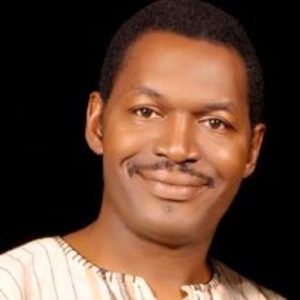
Prof Aiyede
We start from the University of Ibadan where we can sight Professor Emmanuel Aiyede who is, incidentally, the current Head of the Department of Political Science at the university. Those who are close to him say he is sufficiently angry about the decay in Political Science that they expect fireworks. But it will take at least another one year for Aiyede to mark himself out as a reform hungry academic leader. He has achieved leadership in terms of quantity and quality of publications that qualify him to become a professor of Political Science at Ibadan. But by becoming the Head of Department of that esteemed Department, he has entered a different dimension of academia.
The Department of Political Science at Ibadan is one of the very few where some of the critical theories are taught mentioned or taught at all in Nigerian universities. Even then, it is just about two of such – postcolonialism and Green theory. About four others are missing except if they have been inserted very recently. This is one area that a distant observer can easily notice. There must be similar one or two areas that will engage the attention of Aiyede if universities are able to overcome the twin challenges of COVID-19 and ASUU-FG test of strength.
Although Ibadan is the oldest university in Nigeria, headship of the Department of Political Science is still an exclusive club. Meaning that even if he were not the incumbent HoD or angry about the state of affairs, he would still be a force for change in himself. He is, therefore, one person to watch as far as the return of Political Science leadership of the public sphere is concerned.
There is Usman Tar at the Nigerian Defence Academy who has sent a leadership signal by just one act: He has recently embarked on assembling bright or potentially bright young bloods in Political Science into the Department of Political Science in the military university. One, it means he is thinking of the Department beyond himself and farther into the future. Two, although one doesn’t know the number of such studs he has uprooted from their comfort zone so far, religion does not appear to be a factor in his recruitment drive. What he suggests in himself is, therefore, headship of a scholarly space that can take a position and defend it. It is not clear how much of a constraint the military ownership of the NDA is a factor in the scholarly radius its political scientists can unfold. But, so far, it seems the two cultures of the universe of inquiry and the universe of commandism are meeting and mixing well.
From the military university to the University of Jos where we can see Prof Pam Dung Sha. A product of the ABU, Zaria tradition of scholarship, he has not only published, he has also immersed himself outside the university. Currently ‘stolen’ from the University of Jos by the National Institute for Policy and Strategic Studies, the assumption is that he would be back to traditional academia as soon as necessary. Otherwise, much younger undergraduates in need of grooming in traditional as well as critical political economy would be losing to the satiated, less knowledge hungry set of students we see at NIPSS.
It is not clear how Browne Onuoha at the University of Lagos may be classified. There is no strict generational bar in this listing but it favours a certain age limit. In other words, they are all academics who still have some time to give to the university system and to Political Science. This reporter has no idea of Prof Onuoha’s age bracket and how many more years he has. Otherwise, he speaks the language of Political Science and he is a clear discipline leader. It means there will be a section on him if ever this story is updated.
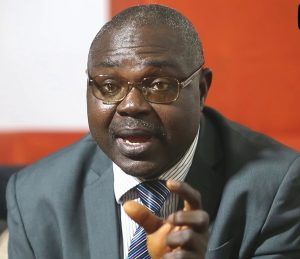
Prof Sylvester Odion-Akhaine
The last on this list and deliberately so is the Lion of LASU – Prof Sylvester Odion-Akhaine. You may not like his position on the national question as things stand today but you cannot but recognise him in any listing of emerging leaders of the discipline. He has published prodigiously. He writes a column, he runs an NGO and he is vocal. He speaks to the scholar as a global commodity, maximizing his connections in international scholarship. But the most significant sign of intellectual leadership from him might be his effort at publishing a journal. Nigeria is currently a desert in terms of credible journals that anybody outside is reading and referencing. They must be very few. In the absence of journals, most academics simply put together a collection of funny texts, give it an outlandish name, put their stuff there just to get promotion. Not even their students read those ‘journals’.
There is no reference to two set of political scientists in this listing. The first set is that of the Bolaji Akinyemis, Jonah Isawa Elaigwu, Adele Junaidu, John Ayo Ade, Alaba Ogunsanwo, Asisi Asobie, Alex Gboyega, Bayo Adekanye, Ibrahim Gambari, Sam Oyovbaire and so on and so forth. This category are mostly in retirement by now and the best it is reasonable to expect from them is help in one thing or the other even as Prof Ogunsanwo is still teaching and examining students.
The second category involves names as Adigun Agbaje, Eghosa Osaghae, Ogban-Ogban Inyang, Jibrin Ibrahim, Attahiru Jega, Okey Ibeanu, Sam Egwu. The members of this club are still active, very much around but have become the senior members, have already over-published in most cases and have multiple trans-campus commitments within and outside the country. some of them are also too unhappy about the collapse of education that they are no more agitated or excited about it all. And understandably so!
It bears repeating that this is a very casual, limited listing that might need to be expanded or revisited from a completely different entry point. There are tough egg heads scattered in some of the new universities that only a more careful compilation process might bring them into the list. For now, these seems to be the men (no woman yet) to watch if Political Science can make a big come back in Nigeria in spite of the huge system stress.




